Global Supply
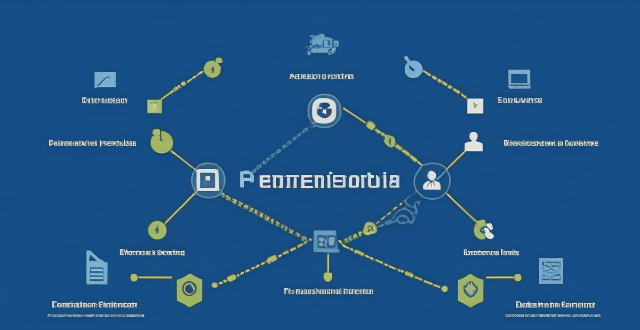
How do geopolitical factors influence the sustainability efforts of global supply chains ?
Geopolitical factors significantly influence sustainability efforts in global supply chains by affecting trade policies, political stability, resource control, infrastructure development, and cultural attitudes towards sustainability. These elements determine the costs, efficiency, and environmental impact of global production networks. Understanding these dynamics is vital for businesses aiming to build resilient and sustainable supply chain operations.

What are the impacts of global warming on agricultural production and food supply ?
This article discusses the impacts of global warming on agricultural production and food supply, including changes in climate patterns, reduced crop yields, loss of biodiversity, decreased nutrient content, heat stress in livestock, changes in feed availability, increased risk of disease, reduced food availability, increased food prices, and food safety concerns.
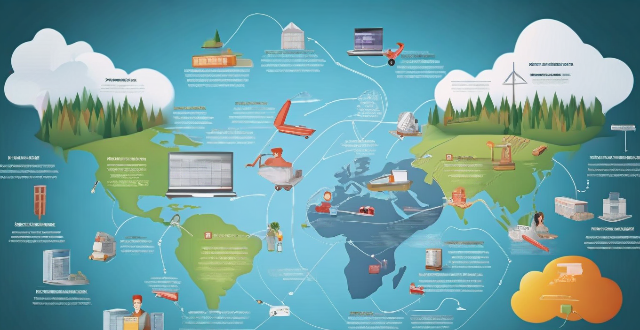
What are some best practices for managing risk associated with climate change in a global supply chain ?
This article outlines best practices for managing risk associated with climate change in a global supply chain. It suggests assessing climate change risks by identifying potential impacts and evaluating vulnerabilities, developing a risk management plan that includes setting clear objectives and implementing mitigation measures, and monitoring and reviewing performance through tracking progress against objectives and continuously improving strategies. Key strategies include diversifying supplier networks, investing in resilient infrastructure, improving energy efficiency, enhancing supply chain transparency, promoting sustainable practices, establishing regular reporting processes, benchmarking against industry standards, soliciting stakeholder feedback, revising risk management plans regularly, participating in collaborative learning opportunities, and fostering a culture of innovation within the organization.

What policies and regulations are currently in place to encourage more sustainable supply chain practices ?
Policies and Regulations Encouraging Sustainable Supply Chain Practices discusses various government initiatives, industry standards, and international agreements that promote sustainable supply chain practices. Government policies such as green procurement, carbon pricing, and eco-labels incentivize businesses to adopt environmentally friendly operations. Industry standards like CSR and LCA help companies understand and reduce their ecological footprint. International treaties like the Paris Agreement and Basel Convention provide a global framework for sustainable practices. Together, these measures form a comprehensive system to support sustainable supply chains worldwide.
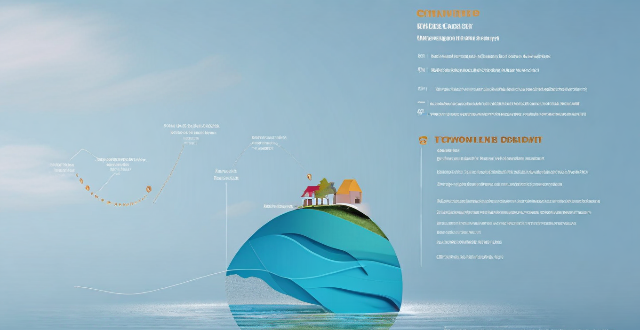
How does climate change affect global supply chain management ?
Climate change affects various aspects of life, including global supply chain management. Extreme weather events, rising sea levels, changes in agricultural production, energy costs, and labor availability are some ways in which climate change impacts this crucial aspect of business operations. Businesses must adapt their strategies to mitigate these risks and ensure the continued efficiency and effectiveness of their operations.

How does global shopping change with holiday seasons ?
The holiday season significantly impacts global shopping trends, affecting consumer behavior, marketing strategies, and supply chain operations. Key changes include increased spending, a shift to online shopping, targeted advertising, adapted supply chains, evolving product demands, workforce adjustments, sustainability concerns, and digital transformation. Retailers must adapt to these changes to meet consumer expectations and maximize sales success.

How has the COVID-19 pandemic highlighted the importance of resilient supply chain management in the face of climate-related disruptions ?
The text discusses the impact of the COVID-19 pandemic on supply chain management and emphasizes the importance of resilient supply chain management to withstand future climate-related disruptions. The pandemic caused significant disruptions in the global supply chain, including disruption of global trade, bottlenecks, shortage of raw materials, and labor shortages. A resilient supply chain is adaptable, diversified, collaborative, and leverages technology to improve efficiency, reduce waste, and increase transparency. These characteristics ensure that the supply chain can withstand not only the current crisis but also future climate-related disruptions.

How can smart contracts improve supply chain management ?
Smart contracts can revolutionize supply chain management by automating transactions, enhancing transparency, improving efficiency, enabling real-time tracking, and reducing risks. This decentralized and automated approach can save time, reduce costs, prevent fraud, and improve overall trust between parties in the supply chain.

How can businesses measure and report their environmental performance throughout their supply chains ?
Measuring and reporting environmental performance in supply chains involves setting clear objectives, conducting a baseline assessment, developing an action plan, implementing and monitoring progress, and reporting performance transparently. Adopting standardized metrics, engaging stakeholders, and continuously improving are best practices to effectively manage environmental impact throughout the supply chain.

What role does technology play in ensuring a continuous supply of sustainable energy ?
The text discusses the pivotal role of technology in securing a consistent supply of sustainable energy. It highlights how technology enhances efficiency, reduces costs, mitigates environmental impacts, boosts energy security, and fosters innovation and job creation in the renewable energy sector.

What is the role of consumers in driving more sustainable supply chain practices through their purchasing decisions ?
Consumers play a crucial role in driving more sustainable supply chain practices through their purchasing decisions. By choosing products that are produced using environmentally friendly and socially responsible methods, consumers can influence companies to adopt more sustainable practices throughout their supply chains. This can lead to reduced carbon emissions, improved working conditions, and better resource management. The key points include education and awareness, green consumerism, supplier selection, product design, brand loyalty, public pressure, regulatory influence, investor interest, innovation, and collaboration.
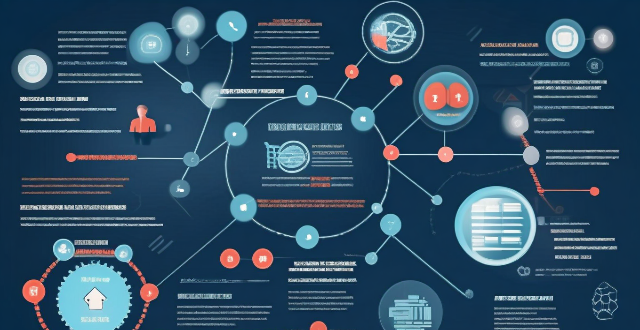
How can blockchain solve the issue of supply chain management ?
Blockchain technology can revolutionize supply chain management by addressing various challenges faced by businesses. It improves visibility and traceability, reduces paperwork and manual processes, streamlines payment processes, enhances data security, and builds trust among stakeholders. With its potential to solve many of the issues faced by businesses in supply chain management, blockchain is an ideal solution for modern supply chains.

How can suppliers be motivated to adopt more eco-friendly practices in their operations to support a greener supply chain ?
**Motivating Suppliers to Adopt Eco-Friendly Practices** In today's world, environmental sustainability has become a global concern, and businesses are increasingly looking towards greener supply chains. However, the success of a green supply chain largely depends on the suppliers' willingness to adopt eco-friendly practices. This article provides strategies for motivating suppliers to embrace sustainable operations, including financial incentives, collaborative approaches, transparency and accountability, technology and innovation, and regulatory compliance. By implementing these strategies, businesses can effectively motivate their suppliers to adopt eco-friendly practices, which not only benefits the environment but also enhances business reputation and customer satisfaction.

What are the latest trends in the global economy ?
The global economy is influenced by various interconnected factors including digital transformation, sustainability, global trade dynamics, monetary policies, and the rising influence of emerging markets. These trends are reshaping industries, fostering innovation, and influencing economic growth and policies worldwide.

What are the economic implications of investing in climate-resilient supply chain infrastructure ?
This article explores the various economic implications of investing in climate-resilient supply chain infrastructure. It highlights how such investments can lead to cost savings, increased productivity and efficiency, improved insurance rates, enhanced supply chain visibility, and competitive advantage. The article also emphasizes the importance of building a strong brand reputation and accessing new markets through sustainable and resilient practices. Overall, it underscores the significance of prioritizing investments in climate-resilient supply chain infrastructure for businesses and economies around the world.

What are the benefits and challenges of using drones for medical supply delivery ?
**Benefits of Using Drones for Medical Supply Delivery:** - **Increased Efficiency:** Drones can cover large distances quickly and bypass obstacles. - **Accessibility to Remote Areas:** Ideal for reaching rural or disaster-affected regions. - **Cost Savings:** Lower manpower and operational costs compared to traditional methods. - **Improved Safety:** Eliminates human errors and operates in hazardous conditions. - **Real-Time Tracking:** Ensures accountability and peace of mind for senders and recipients. **Challenges of Using Drones for Medical Supply Delivery:** - **Regulatory Issues:** Strict regulations and complex permit processes limit drone operations. - **Technical Constraints:** Limited load capacities, battery life, and weather conditions affect reliability. - **Security Concerns:** Risks of interception and tampering with cargoes. - **Public Perception:** Addressing privacy concerns and gaining public acceptance is essential. - **Infrastructure Development:** Significant investment required for support infrastructure.

In what ways can businesses engage in sustainable supply chain management as a key component of their CSR programs ?
The text discusses the importance of sustainable supply chain management in corporate social responsibility (CSR) programs. It emphasizes setting clear objectives and goals, conducting supplier audits and assessments, collaborating with suppliers, measuring performance and reporting results, and continuously improving and innovating as key steps in sustainable supply chain management. The text suggests that these practices can help businesses demonstrate their commitment to sustainability while also improving their bottom line.

What are the economic implications of global warming for different countries ?
Global warming has significant economic implications for countries worldwide, affecting sectors like agriculture, health, infrastructure, insurance, energy, and labor markets. Developing nations often face challenges related to food security, health concerns, and infrastructure damage due to extreme weather events. Developed nations may see impacts on insurance and property markets, the energy sector, and labor productivity. Globally, there can be trade disruptions, migration and security issues, and financial market fluctuations. Coordinated international efforts are crucial to mitigate these effects and adapt to the changing environment.

Can renewable energy sources help in reducing the impact of global warming ?
Renewable energy sources, including solar and wind power, can significantly reduce greenhouse gas emissions and contribute to a sustainable future. These clean energy alternatives offer benefits such as reduced carbon footprint, energy independence, and economic growth. However, challenges like intermittency, storage issues, and high initial costs need to be addressed through grid modernization, advances in storage technology, government incentives, and increased public awareness. By overcoming these obstacles, we can create a more sustainable future for all.

How has the COVID-19 pandemic impacted global health security ?
The COVID-19 pandemic has significantly impacted global health security by overwhelming healthcare systems, necessitating public health policies such as lockdowns and quarantine measures, and highlighting the importance of international cooperation. The strain on healthcare systems included increased patient loads, shortages of medical supplies, and stress on the healthcare workforce. Public health responses involved vaccination programs, testing and tracing initiatives, and economic challenges due to lockdowns. International cooperation was essential for coordinating a global response, sharing information, and addressing misinformation. The pandemic also highlighted the need for resilient global health systems, sustained investment in public health infrastructure, collaborative research, and technological advancements. Overall, the COVID-19 crisis has prompted efforts to build stronger and more cooperative global health systems prepared for future emergencies.

What are the impacts of climate change on global weather patterns ?
Climate change, driven by human activities like burning fossil fuels and deforestation, is altering global weather patterns. These changes include increased frequency and intensity of extreme weather events such as heatwaves, heavy precipitation, droughts, and storms, as well as changes in seasonal weather patterns like early spring onset and altered monsoon patterns. Long-term changes in weather patterns include polar amplification, ocean circulation changes, and atmospheric circulation changes. These impacts pose significant challenges for adaptation and mitigation efforts aimed at reducing negative effects on ecosystems, societies, and economies worldwide.

How can international cooperation on climate change contribute to global security ?
International cooperation on climate change is vital for global security. It helps mitigate environmental disasters, promotes economic stability and growth, enhances social cohesion and peace, facilitates technology and knowledge sharing, and strengthens global governance and diplomacy. Through joint efforts, nations can address one of the most pressing challenges of our time and secure a safer future for all.

What is the future outlook for gold investment ?
The future outlook for gold investment is influenced by various factors such as economic conditions, monetary policy, supply and demand dynamics, and investor sentiment. Economic uncertainty can drive up the demand for gold as a safe-haven asset, while periods of growth may decrease its value. Central banks' interest rate decisions and money supply changes can also impact gold prices. Supply and demand dynamics, including mining production and jewelry demand, play a role in determining gold availability and price. Finally, investor sentiment towards gold can be shaped by market trends, investment strategies, and overall risk appetite. By monitoring these key factors, investors can make informed decisions about the viability of gold as a portfolio addition in the coming years.

What is the outlook for the European Union's economic recovery ?
The economic recovery of the European Union (EU) depends on political stability, global economic conditions, and domestic policies. Unity among member states and effective governance are crucial for managing crises and implementing growth-promoting policies. Global trade dynamics and supply chain disruptions also play a significant role. Domestically, fiscal stimulus, structural reforms, and a balanced green transition are key. The outlook is optimistic but uncertain, with many influencing factors.

How does climate variability affect global weather patterns ?
The impact of climate variability on global weather patterns is substantial, affecting temperature, precipitation, wind patterns, and extreme weather events. Key influences include El Niño and La Niña phases, monsoon systems, altered rainfall distribution, jet stream variations, tropical cyclones, heatwaves, cold spells, storms, floods, and droughts. Long-term climate trends like global warming also significantly affect weather patterns. Understanding these interactions is crucial for predicting future conditions and addressing climate-related challenges.

Can sustainable supply chain practices help reduce carbon emissions and combat climate change ?
Sustainable supply chain practices can play a crucial role in reducing carbon emissions and combating climate change. By focusing on resource efficiency, waste reduction, transportation optimization, supplier management, lifecycle assessment, renewable energy adoption, and employee involvement, companies can significantly lessen their environmental impact. These efforts not only contribute to global sustainability goals but also offer potential reputational, efficiency, and cost benefits for businesses.

How has the COVID-19 pandemic affected the global economy ?
The COVID-19 pandemic has caused a slowdown in production, reduced consumer spending, job losses, disruption of global supply chains, financial market volatility, and required government intervention with stimulus packages.

How do climate data analysis contribute to understanding global warming ?
Climate data analysis is essential for understanding global warming, its causes, effects, and potential solutions. Scientists collect temperature records, carbon dioxide concentrations, and sea level data to identify trends, establish correlations, and create predictive models. These efforts help develop effective strategies to mitigate the impacts of global warming.
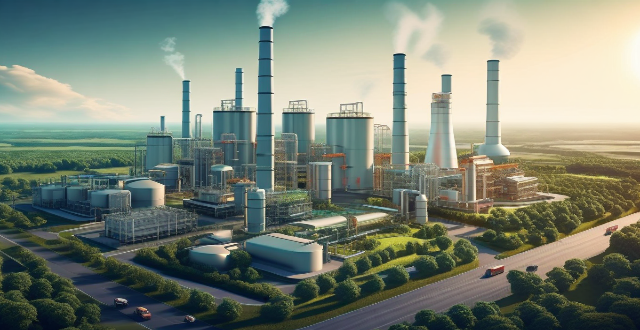
What role does natural gas play in the global energy market ?
Natural gas is a key player in the global energy market due to its environmental advantages, economic benefits, contributions to energy security, technological advancements, and versatile applications across sectors.